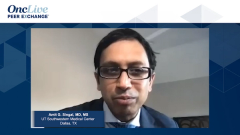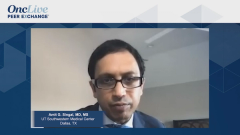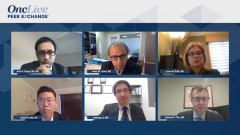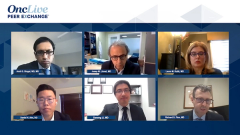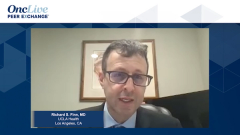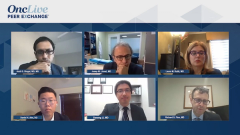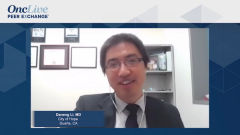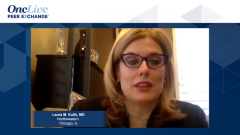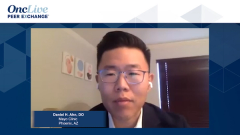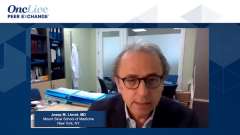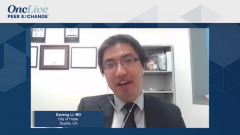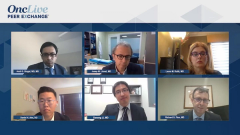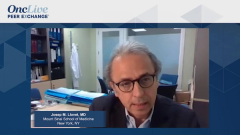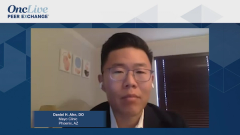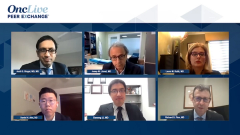
A New Standard of Care for Liver Cancer Treatment
A discussion about the recent data from trials that looked at atezolizumab-bevacizumab for the treatment of advanced HCC, and its role as the new standard of care.
Episodes in this series

Richard S. Finn, MD: With that great discussion on intermediate disease or the Barcelona Clinic Liver Cancer stage B group, let’s transition our discussion to advanced disease. We’ve had a huge evolution. We had Josep Llovet’s plenary presentation of sorafenib at ASCO [American Society of Clinical Oncology Annual Meeting] in 2007, then we had a long drought. No new drugs approved until 2018, and then we had an explosion, including both frontline and second-line settings. Lenvatinib was approved based on its data from the REFLECT study that showed it was noninferior to sorafenib for overall survival. Sorafenib had a survival around 12 months and lenvatinib about 13 months, which was not statistically different but not necessarily significantly worse.
We did see an improvement in progression-free survival and improvement in response rates. This cracked the jar, so to speak, for other gains in the frontline setting. I've been very fortunate to be involved with Dan Ahn as well in the IMbrave150 study, which looked at bevacizumab in combination with atezolizumab in the frontline setting. This study, which was published in the New England Journal of Medicine in May, and showed significant activity for the first time with a regimen that was superior to sorafenib in terms of overall survival. At the time of our analysis in May, and the primary presentation at ESMO [European Society for Medical Oncology] Asia Congress in 2019, we had not reached the median survival for the atezolizumab-bevacizumab arm. We saw a significant risk reduction vs sorafenib, the hazard ratio was 0.58, so a 42% decrease in the risk of death with atezolizumab-bevacizumab vs sorafenib. This was supported by a similar benefit in progression-free survival and, as we’ve seen with I/O [immuno-oncology], double-digit response rates that are durable. We had about a 27% response rate at that first analysis and a very manageable safety profile with this regimen. Keep in mind all these patients were characterized as Child-Pugh A and had screening endoscopies within 6 months of coming on study. The regimen was tolerated well, which was supported by the quality-of-life data that showed clear superiority of this regimen.
With longer follow-up at ASCO GI [American Society of Clinical Oncology Gastrointestinal Cancers Symposium] a few weeks ago, we presented a follow-up at over 15 months, whereas at the initial presentation the follow-up was about 8½ months. We have the true median for the combination arm, and it’s over 19 months. Median survival of 19.2 months vs 13 months with sorafenib, and we also saw an improvement in the response rate with longer follow-up. The response rate is now 30% with 8% complete responses.
We now have a regimen that I would characterize as highly active. It’s very rewarding to see patients who are having responses, and I’ve participated in some of the clinical trials with other combinations. For lenvatinib-pembrolizumab in the context of its phase 2 study, response rates were 36%; it’s a new era of liver cancer treatment.
When we think about patient selection, Amit, how do you think about atezolizumab-bevacizumab vs lenvatinib or sorafenib in the frontline setting?
Amit G. Singal, MD, MS: Richard, you touched on several important aspects when you talked about the IMbrave150 trial. When we think of any systemic therapy, it’s important to remember the registration trials largely included people with good liver function, so Child-Pugh A disease, and that’s true across the board. We’ve seen real-world data come out for sorafenib. It has been out for over a decade, and we’ve seen real-world data for sorafenib in extended patient populations, such as those with Child-Pugh B disease. We’re starting to see that with lenvatinib as well, which was presented at ASCO GI this year in terms of some extended patient populations, including Child-Pugh B disease.
When you think of those extended patient populations outside the registration trials, that’s where TKI [tyrosine kinase inhibitor] therapy continues to be the standard or the ones that I feel safe using. However, in those patients who meet eligibility, with the superiority data that you already presented, the combination of atezolizumab and bevacizumab is the standard for starting therapy and should be considered the standard of care for any patient who is eligible.
Outside of liver function, the other thing you touched on, which is critical in this patient population, is to perform that upper endoscopy. This is standard for any patient with cirrhosis to start with, but especially when considering treatment with atezolizumab-bevacizumab, because that higher risk of bleeding with bevacizumab makes this even more critical prior to starting that therapy. Perform that upper endoscopy, make sure that patient doesn’t have large varices or any signs of potential bleeding, significant portal hypertensive gastropathy, significant thrombocytopenia, or anything that would make you concerned about a higher risk of bleeding. I would have significant concerns about using atezolizumab-bevacizumab in that patient and would use alternative agents in that patient population as well.
Transcript Edited for Clarity


